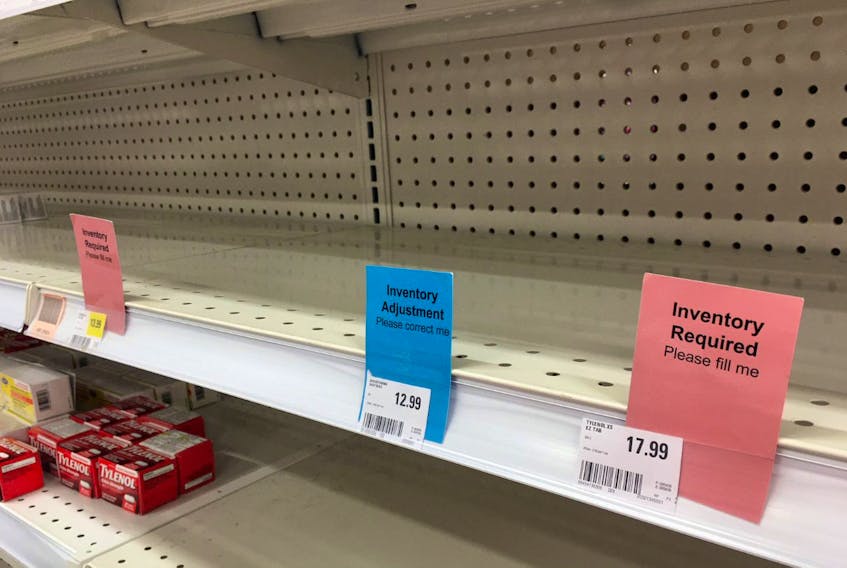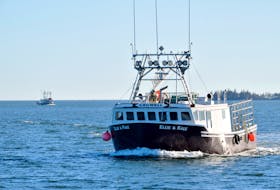Vaughn Smith had a lot on his mind Monday morning.
It was all based around one question — should he fire up the tractor trailer in his Oxford, Cumberland County, driveway and head to South Dakota?
“Anybody else going across international border are supposed to quarantine themselves for 14 days except truck drivers,” said the owner of Vaughn Smith Trucking and Excavation.
“We're supposed to self-quarantine in our truck. So we're expected to put our health and our family's health at risk.”
If he answers the first question with a ‘yes,' it raises others.
The six-day round trip will require multiple stops for fuel in states along the way where the coronavirus is spreading rapidly. He'd want to have a shower somewhere down there.
Once home, does he go in the house where his wife babysits his five grandchildren daily due to the closure of schools and daycares?
Then there are the seemingly minor questions. Most restaurants en route will be closed and even where they were open it would seem unwise to go in and potentially expose himself to catching the virus.
“I guess I'd bring some cereal,” said Smith.
The load of trailers in South Dakota isn't critical to the survival of his fellow Nova Scotians. But it is important to paying the bills that don't stop on his equipment and it,
like every load that crosses the Tantramar Marsh connecting Nova Scotia to the rest of North America, is important to our economy.
We are connected by trucks. On Monday afternoon Prime Minister Justin Trudeau announced outside Rideau Cottage, where he remains in self-isolation, the closure of Canada’s borders to those who aren’t citizens, permanent residents or American.
Meanwhile, the trucks and their drivers are expected to keep moving.
Atlantic Canada’s food comes primarily from warehouses in Ontario, Quebec and the Northeastern United States. Loblaws has a large warehouse in Moncton while Sobeys has one in Debert, from which goods are shipped directly to grocery stores.
“With our supply chain in the Maritimes or anywhere for that matter, nobody stockpiles, everything is ontime delivery as needed,” said Smith.
“So there’s no local backup supply.”
The rush to grocery stores to stock up what are being dubbed pandemic pantries across North America has stressed the extended supply chains on which Atlantic Canadians are now dependent.
Analytics firm Nielsen estimated North American purchasing of rice and dried beans jumped over 50 per cent between Jan. 18 and March 7. Pasta, peanut butter and oat milk all saw large increases as well.
Neither Loblaws (which owns Atlantic Superstore) nor Sobeys provided The Chronicle Herald with estimates of how extensive their local supplies of food are.
Loblaws did, however, provide a written statement saying that supply chains remain strong.
“We understand the frustration of an empty shelf and have assigned an entire team to the challenge of rapidly re-stocking key food, health, cleaning and comfort items,” wrote Loblaws spokesman Marc Boudreau.
“Our teams have increased inventory on those products and wherever possible we expect to be fully back in stock in the coming days.”
He cautioned, however, purchase limits may be placed on certain items to ensure all customers are able to meet basic needs.
Back in Oxford, Smith had a thought he wanted to share as he worked through whether to hit the road.
“Everything you’ve got on your back and everything you put in your mouth came in a truck,” said Smith.
“But you’ve got to remember we’re human beings, too.”









